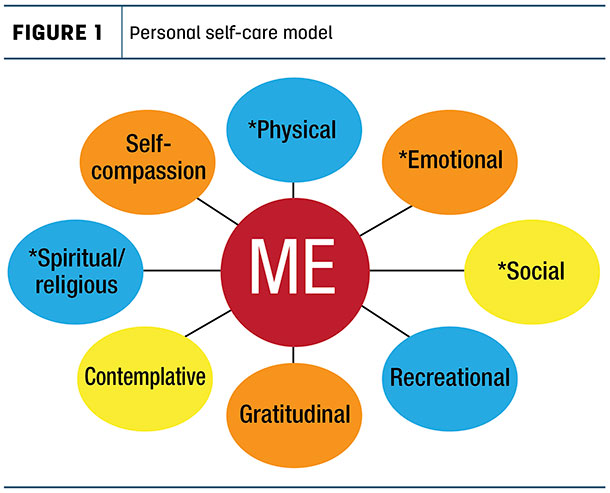We have all heard and said the farmer’s mantra: “Next year, we will work a little harder, and next year will be better.” In fact, we’ve heard and said it so many times the qualities identified in that statement – hope, faith and optimism – have almost become commodities we think we can store and tap into on an unlimited basis.
Hope, faith and optimism are valuable. Those qualities are frequently combined with an ability to continually push forward – no matter how many challenges block your path. Some call it stubbornness, some call it hardheadedness, and those who like to use optimistic terminology call it resiliency.
Through hope in the future and faith in hard work and determination, farmers overcome unimaginable challenges to get the job done.

A webinar series, “Cultivating Resiliency for Women in Agriculture,” is designed to help develop and nurture hope, faith, optimism and resiliency, especially during these financially stressful times. Created through a joint partnership of the American-Agri Women, Minnesota Agri-Women’s District 11 and the University of Minnesota Extension Women in Ag Network, the online, interactive webinars are being presented by Shauna Reitmeier and Brenda Mack.
Reitmeier currently serves as chief executive officer of the Minnesota-based Northwestern Mental Health Center. Mack is a behavioral health and human services trainer and presenter, and works as an assistant professor in the social work department at Bemidji State University, Bemidji, Minnesota.
Both women are actively involved on their families’ farms, experiencing all the joys and stressors of agriculture. Both have extensive education and experience providing mental health and crisis response services to the farm community and are passionate about increasing access to mental health services for U.S. farmers. With more than 20 years combined experience in behavioral healthcare, and their lifetime experience in agriculture, they are equipped with awareness and insight into the unique challenges farming presents.
Farm stress and its impact
The first session in the webinar series, “Impact of Farming and Ranching Stress for Women 101,” discussed how farming and ranching stress may be affecting women in agriculture.
According to a description on Web MD, an online health and wellness resource, “Stress is a part of life. What matters most is how you handle it. The best thing you can do to prevent stress overload and the health consequences that come with it is to know your stress symptoms.”
In their joint presentation, Reitmeier and Mack identified and described stress and the possible outcomes of excessive worrying and the feeling of hopelessness. “During the webinars, we may learn our situations are similar, and our discussions may trigger thoughts and emotions we are not prepared to address,” Reitmeier warned.
We all manage stress differently, Mack said. Stress affects not only you, but the other people in your life, and it is important to be able to identify when stress is not working for you. Stress can be positive, such as the adrenaline rush we get when aiding in a calf’s delivery or the energy surge to finish throwing that last bale into the loft. But stress can be negative as well, affecting each individual differently.
Mack recommends developing self-awareness to identify signs of negative stress, such as:
- Lack of sleep
- Mood swings
- Distractedness
- Changes in physical appearance
- Inability to make decisions
- Withdrawal from others
- Feelings of hopelessness
- Increased alcohol use
Loss of control
Forces from inside of us, and from the outside world, affect our feelings and emotions, Mack explained. She instructed attendees to close their eyes and take three deep breaths, and then asked, “What is your unique definition of farming-, ranching- and agriculture-related stress? What are your unique farming-, ranching- and agriculture-related challenges that are causing you excessive worrying?”
Her question reminds me we are the kings and queens of our own kingdoms. Each of us manages our farms in a unique way that utilizes the resources available and fits our environment. Whether right or wrong, we make the decisions that affect the success and failure of our farms.
This has been the norm throughout our lives, but that has changed. Now, we are in a time where we believe we have lost control of our markets, and our safety is threatened by outside forces over which we have no control. The feeling of “damned if you do, and damned if you don’t” is an apt description of the challenges many of us are facing, no matter which breed or the number of cows we are milking.
“In agriculture, there are so many things we do not have control over,” Mack said. “Focus on what you do have control over so you can increase your happiness and well-being.”
Stress strains relationships
Stress affects relationships, and strong supportive relationships are important, Mack emphasized. She challenged us to identify, “Who is your person; who is on your team? Who can you call and talk with for five minutes to help you cope with what is going on in your life?”
The overwhelming workload on a farm can cause communication to break down, and resentment to creep in, so on top of the stress from the overwhelming workload, we begin to have stress on our relationships as well. The importance of relationships cannot be overstated. You are not alone. In one way or another, we are all facing this situation, and we are all in it together.
Who do you call when the cows are out, or the rain is coming and the hay is down? Who do you call when you need help? Who would you call in the middle of the night to help you pull a calf? Just as importantly, whose call would you answer at 2 a.m.? Create the opportunity to have a conversation and listen to one another. Give this person a call and ask them to stop by for a quick coffee and some cow talk, or stop by their place with a plate of cookies and some ice-cold milk.
Coping strategies
Through self-awareness and identifying when stress is becoming negative, Mack identified healthy coping strategies that can be implemented, such as:
- Healthy eating
- Drinking water
- Sleeping
- Strong, supportive relationships
- Positive self-talk
- Self-care strategies
Interactive participation urged
Created by farmers for farmers, the online webinars in the “Cultivating Resiliency for Women in Agriculture” series are providing tools and resources for farmers to draw upon. Reitmeier and Mack shared tools for dealing with stress, such as a positive self-talk worksheet, a self-care model and list of stress-relief and self-care apps. Each session also provides time for comments and questions.
Women from throughout the U.S. and Canada participated in the initial webinar, according to Doris Mold, past president of American Agri-Women, a farm business management instructor, farmer and webinar moderator. She emphasized that the interactive nature of the sessions is vital to the series’ success and helpfulness.
By asking questions during the webinar and answering a survey, attendees provide the presenters with tools to increase their effectiveness and guide content of future sessions.
The information presented in the webinars is not a substitute for treatment; it is meant to be a platform for sharing and empowering people.
“As we learn from this, we are going to be expanding the work we do nationally,” Mold said.
Webinar sessions, archives
All webinars will be on Fridays, at noon (CST), and cover the following topics:
- Jan. 11 – Self-Care Tips to Help Reduce Stress
- Jan. 25 – You Can’t Pour From an Empty Cup
- Feb. 8 – Building and Maintaining Relationships in Stressful Times
- March 8 – Increasing Your Joy and Happiness While Living a Farm Life
- April 12 – Putting It All Together
All sessions in the series are being recorded and will be available online for those who are unable to attend the live webinar or those who want to listen again. The webinars are geared toward women but are open to anyone who would like to learn more about how to weather stress. Go to Cultivating Resiliency for Women in Agriculture to learn more about the series, view recorded sessions and to register for upcoming free webinars. Email Doris Mold for questions about the series.
Online questionnaire available
Through an anonymous online questionnaire, program coordinators are also collecting data to learn more about women in agriculture and their resiliency to stress. This information will be useful in developing additional national resources. The link for the questionnaire is online (Cultivating Resiliency questionnaire).
Open to anyone over the age of 18, survey participation is voluntary and anonymous, and should take no more than 10 minutes. The questionnaire will close on April 1, 2019.
The online sessions and the questionnaire are funded through a grant from the Upper Midwest Agricultural Safety and Health Center (UMASH). Megan Roberts, from University of Minnesota Extension and a farmer, and Mold are co-leads on the grant project. ![]()






